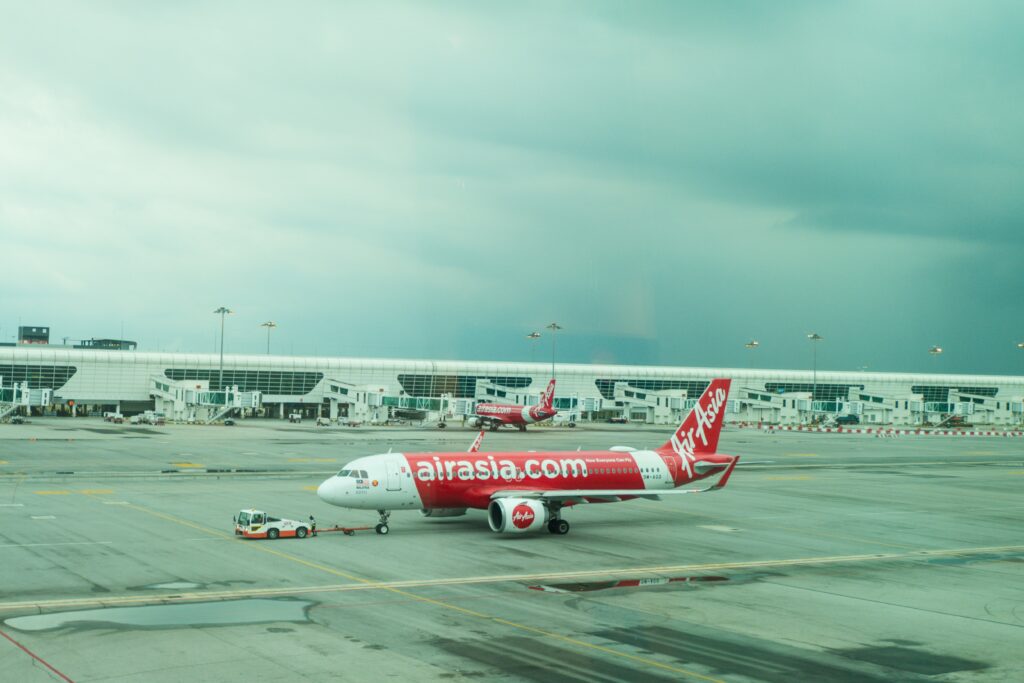In early June 2025, the Philippine Department of Transportation (DOTr) and Civil Aeronautics Board (CAB) took decisive action by ordering AirAsia MOVE—a Malaysian-based online travel agency (OTA)—to cease selling domestic tickets citing “excessive fares.” Yet the issue rippled across other OTAs like Agoda, Kiwi.com, and Traveloka, triggering a broader regulatory response. As someone who runs several tours in Metro Manila, this is a bit concenring.
📌 What Prompted the Crackdown
On June 2, Transportation Secretary Vince Dizon detailed alarming fare disparities. He shared that tickets from Tacloban to Manila were listed at ₱77,720 for two passengers—₱38,860 each—on AirAsia MOVE, while Philippine Airlines (PAL) priced the same leg at roughly ₱12,100 per person . Dizon condemned it as “absurd” and possibly economic sabotage, especially amid the emergency in Eastern Visayas due to load restrictions on the San Juanico Bridge.
The CAB promptly issued a cease‑and‑desist order against AirAsia MOVE on May 26, demanding compliance with fare ceilings and bringing the OTA within enforcement jurisdiction—despite its foreign registration.
OTAs Defend: Technical Glitch or Intentional Gouging?
AirAsia MOVE CEO Nadia Omer responded, insisting the fare spike stemmed from “temporary data synchronization issues” with upstream aggregators and Global Distribution Systems (GDS), not manual price manipulation. She asserted that OTAs simply relay supplier data and instituted tax and pricing safeguards following the incident . Importantly, Omer noted the glitch was industry‑wide, also affecting other OTAs such as Agoda, Kiwi.com, and Traveloka.
OTA forums later corroborated these complaints. Users flagged issues with Agoda’s undisclosed foreign exchange fees and inconsistent customer service, while while travelers on r/phtravel warned others to book flights directly with airlines, citing difficulty with third‑party support.
“I avoid booking on third party websites kasi pag nagka problem… airlines would usually say to get in touch with the 3rd party website.”
“They don’t have human customer service support… unless you pay 500+ pesos on top.”
Government Leaps to Reinforce Fare Controls
The CAB pledged to roll out OTA-specific price ceiling guidelines within weeks to prevent future fare manipulation. Meanwhile, AirAsia MOVE committed to integrating automated filters and price caps for each route—projected to take two to three months to implement.
On June 27, GMA News confirmed the government imposed a ₱6 million fine on AirAsia MOVE for violating fare ceilings—a strong signal nations will hold OTAs accountable.
Ripple Effect: What It Means for Agoda & Other OTAs
Although the spotlight fell on AirAsia MOVE, the broader industry disturbance triggered scanning of all OTAs:
- Agoda and peers were already under scrutiny after the glitch was acknowledged as systemic . Regulatory eyes now turn to their fare structures.
- Meanwhile, hospitality operators in Cebu warned as early as 2020 that unregulated listing sites like Agoda undercut local hotels and sidestepped taxes.
- Forums also expose recurring complaints about opaque fees, questionable listings, and weak customer support from Agoda .
Travel Consumer Impact: Stay Wary, Stay Informed
For Filipino travelers, this episode offers valuable takeaways:
- Verify airfare across multiple platforms—Agoda, OTA apps, and direct airline sites—before booking.
- Read the fine print, especially foreign‑exchange surcharges and booking terms.
- Monitor your email and travel forums for alerts on technical issues or fare distortions.
- When discrepancies occur, demand explanation and reclamation—rare, but possible, according to OTA refund stories .
Regulatory Shift: What’s Next for OTAs and the Tourist Industry
The government is charting new territory:
- Mandatory compliance: OTAs will soon be forcibly tethered to Philippine fare ceilings.
- Technical audits: CAB may inspect systems for data transparency.
- Penalties escalate: Fines and even economic sabotage charges are now tools on the table.
- Tourism resilience: These steps align with DOT’s push to balance tourist inflows with consumer safeguards, echoing past concerns from DOT‑Cebu over unregulated online listings.
This OTA pricing crisis isn’t just about AirAsia MOVE anymore—it’s a wake‑up call for Agoda and other industry players to up their tech transparency, customer service, and local compliance. Regulation is evolving fast, and the stakes are rising. For the modern Filipino traveler, the lesson is clear: book smart, read deeply, and demand accountability.
With evolving OTA regulations, threaded tech accountability, and consumer vigilance, the Philippines is shaping a more transparent travel marketplace—ensuring local travelers aren’t shortchanged in the rush for digital convenience.
